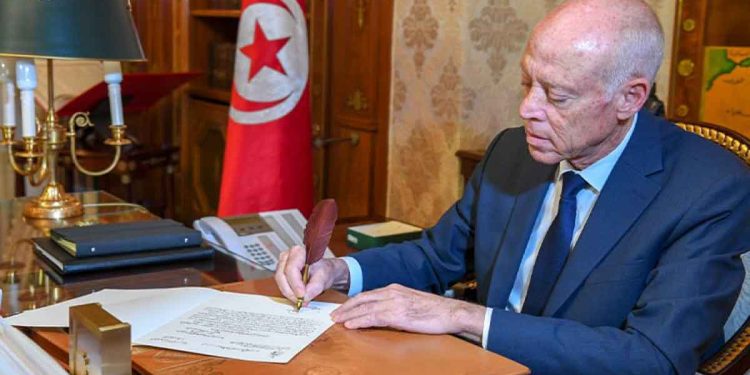Arab Organisation for Human Rights in the UK (AOHR UK) condemned the Tunisian government’s decision to issue international arrest warrants against 12 people, including former Prime Minister Youssef Chahed and former Presidential Office Director Nadia Okasha. AOHR UK warned that such dangerous action indicates the beginning of a new era of cross-border repression.
The Tunisian judiciary issued international arrest warrants earlier this week against these people on charges of “forming a terrorist group” and “posing a threat to the state security.”
The new measures are an extension of the repressive authoritarian decision taken by President Kais Saied in July 2021 to dissolve Parliament and seize executive powers, which was followed by arrest campaigns of political opponents and human rights activists, as well as violations of human rights inside the country.
Transnational Repression
The issuance of international arrest warrants is a dangerous escalation by the Tunisian government, which aims to target dissents and intimidate them, not only within its borders, but internationally. These repressive measures have been practised by a number of authoritarian regimes in the region, led by Saudi Arabia and the Emirates, who pursue their political opponents abroad in order to silence and persecute them in other countries.
Misuse of Artificial Intelligence (AI)
AOHR UK warns of misusing AI to commit violations against human rights, as it was used against the acting head of Ennahda Movement, Mounther El Wanissi, where the authorities used an audio recording of him making statements as evidence of terrorism and attempts to destabilise the country.
Al-Wanissi denied these recordings, stressed that it was fabricated, and demanded an audio test to the voiceprint. His defence team also warned against using AI to record statements that match Al-Wanissi’s voiceprint, pointing out that the country lacks the devices that could determine the truth.
The organisation expressed its concern over the misuse of the artificial intelligence to fabricate evidence and create audio recordings, stressing that such practices are not only unethical, but also pose a serious threat to the integrity of the trial and the human rights of detainees.
Politically motivated cases
The international arrest warrants were issued against individuals charged with politically motivated charges. The use of anti-terrorism laws and international arrest warrants to target political opponents is an abuse of power and a violation of international human rights standards.
AOHR UK calls on the international community, human rights organisations and democratic governments to condemn these unjust and arbitrary practices of the Tunisian government.
It also urges technology companies to be mindful of the ethical implications of AI technologies, which should not be used to facilitate human rights violations, stressing that authoritarian regimes use AI as a weapon to suppress dissent and violate human rights.



























